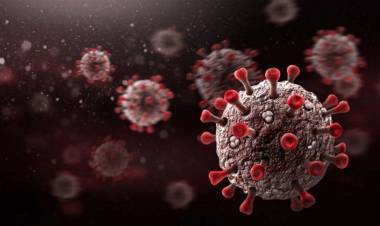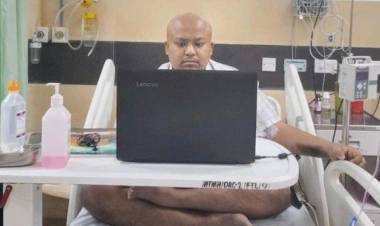It cannot be ignored

A period (menstruation) is normal vaginal bleeding that is a natural part of a healthy monthly cycle for a person with a uterus and ovaries. Menstruation occurs between menarche a girl's first period ( typically age 11to14), and menopause when menstrual cycles end (typically about age 51). The average menstruation time in normally menstruating women is about 5 days. In the United States, most girls start menstruating shortly after 12 years of age. The average person who menstruates loses about 2 to 3 tablespoons of blood during their period. The time between periods (last day to first day) typically averages 28 days, with bleeding typically lasting around 4 to 5 days. However, people can experience longer time between periods, and fewer or more days of bleeding, and still have totally “regular” periods.
Why do women get periods?
As a woman, your period is your body’s way of releasing tissue that is no longer needed. Every month, your body prepares for pregnancy.The lining of your uterus gets thicker as preparation for nurturing a fertilized egg. An egg is released and is ready to be fertilized and settle in the lining of your uterus.If the egg is not fertilized, your body no longer needs the thicker lining of the uterus, so it starts to break down and is eventually expelled, along with some blood, from your vagina. This is your period, and once it’s over, the process starts all over again.
Why is Menstruation Awareness important among people?
There is a need to make them aware that inadequate attention to menstrual hygiene can lead to many infections and even cervical cancer over time. Awareness is needed not only among the girls but also their mothers and family on how important it is to offer support and understanding during this critical phase. Menstruation, or getting your period, is a normal and healthy part of life for most women. However, it’s still stigmatized in many places. Some girls and women feel embarrassed or ashamed when they have to address their periods. It can even cause some people to avoid certain activities and miss out on important experiences. That’s why menstruation awareness is so important. In rural areas the hygiene products are available to them , but they refuse to use them and do not support this. Another really important issue menstruation awareness helps with is educating young people about their periods and feminine hygiene. Because of the stigmas we talked about earlier, some girls may not want to talk to their parents or guardians about their periods. In rural areas, people are not much aware about period hygiene. They use clothes instead of sanitary napkins because these people do not have much information about pros and cons of using clothes. Although sanitary napkins are provided to the women in rural areas, due to the lack of awareness, they tend to follow the same thing which is being followed since always . Creating awareness and openness is one of the most effective ways to help teach girls/women how to properly manage their menstrual hygiene.
What is PMS ?
PMS stands for premenstrual syndrome — the emotional and physical symptoms that some people feel right before and during their periods. PMS is caused by the hormonal changes that your body goes through during your menstrual cycle. Some people get PMS every time they have their periods. Others only get PMS every once in a while. You may have all or just some of the common PMS symptoms. And some people don't get PMS at all. There are two main kinds of PMS symptoms: the ones that affect you physically and the ones that affect you emotionally.
Physical symptoms of PMS include:
-
Craving certain foods or being more hungry than usual
-
Tender, swollen, or sore breasts
-
Feeling bloated (puffy or full in your stomach)
-
Gaining a little weight
-
Headaches
-
Dizziness
-
Swelling in your hands or feet
-
Aches and pains in your joints or muscles
-
Feeling more tired than usual or needing more naps
-
Skin problems, like pimples
-
Upset stomach
-
Cramps or pain in your belly
-
Emotional symptoms of PMS include:
-
Feeling sad, depressed, tense, or anxious
-
Mood swings
-
Feeling more irritable or angry than normal
-
Crying suddenly
-
Not feeling very social or wanting to be around people
-
Having trouble concentrating
-
Trouble falling asleep or staying asleep
-
Changes in your desire to have sex
It’s common to have some of these symptoms and not others. For example, you might have bloating and sore breasts, but not mood swings or skin problems. It may also change from month to month: you could be tired and cranky one month but not the next, or have cramps one month but not the next. It's different for every person. In order for a doctor to officially diagnose you with PMS, you need to have PMS symptoms for at least 3 months in a row. They must start in the 5 days before your period and interfere with some of your normal activities, like school, work, or exercise. If you think you may have PMS, keep a record of your period and symptoms each day for at least 2-3 months. Other conditions, like depression and anxiety, perimenopause, and thyroid disease can act like PMS, so visiting a doctor is the only way to know for sure what’s going on. Some people have really severe PMS that’s called Premenstrual Dysphoric Disorder (PMDD). PMDD symptoms can be really scary and may include feeling out of control, depressed, having panic attacks, or even feeling suicidal. If you think you’re experiencing symptoms of PMDD, see a doctor as soon as possible.
If you liked this post, I’d be very grateful if you’d help it spread by emailing it to a friend or sharing it on Twitter or Facebook. Do not forget to like us on Facebook and follow us on Instagram. Send your entries too…
Thank You
Riya Krishna



























Comments (0)